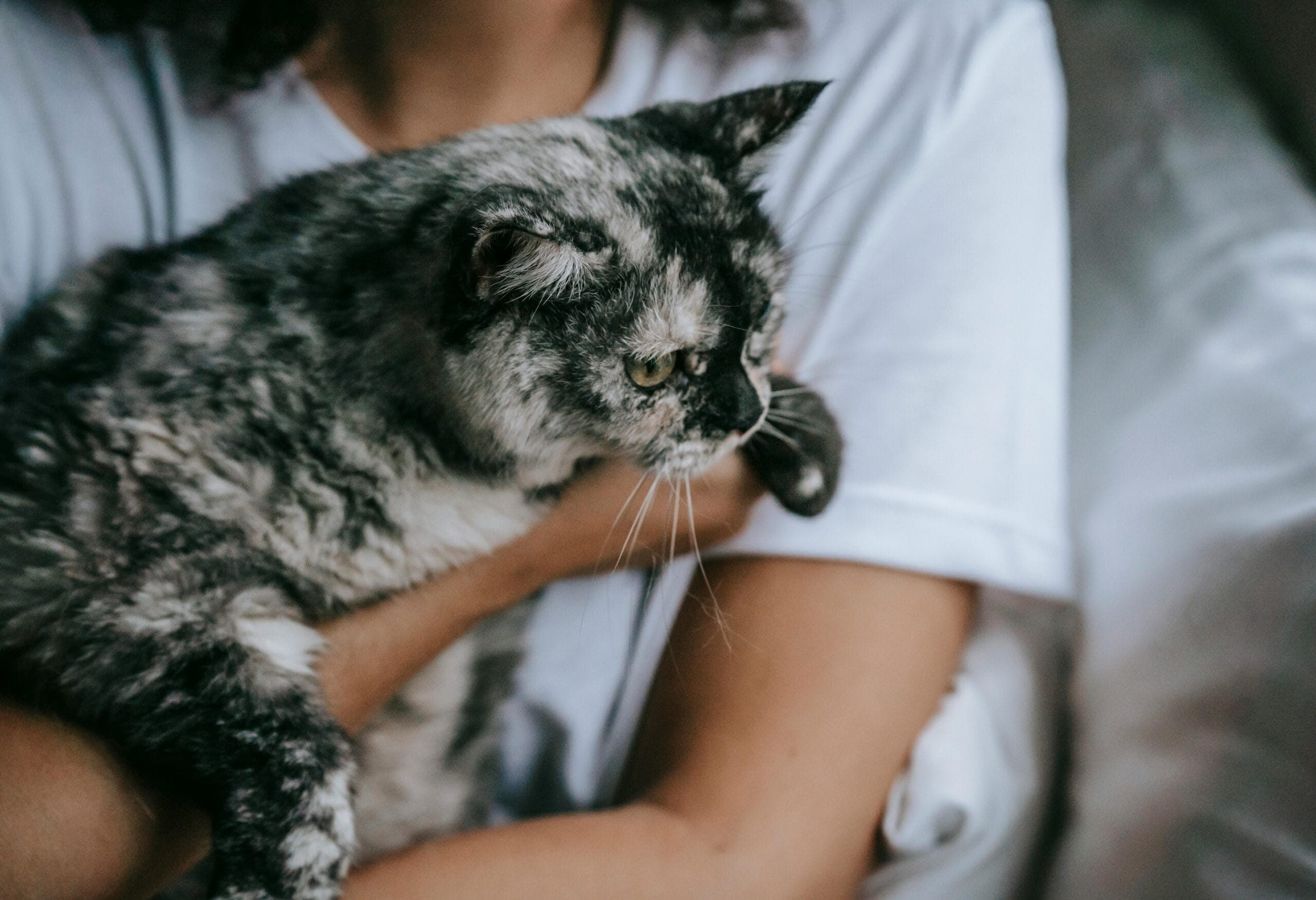How To Get Kittens To Stop Biting ?

How To Get Kittens To Stop Biting? Learn effective techniques to stop kitten biting & prevent painful scratches. Discover solutions for kitten biting now! #KittenBiting #StopKittenBites
How To Get Kittens To Stop Biting: A Comprehensive Guide
Bringing a kitten into your home is a joyous occasion, filled with playful antics and adorable meows. However, the sharp teeth of a tiny kitten can quickly turn that joy into frustration. Kitten biting is a common problem, but understanding the reasons behind it is the first step towards solving it. This comprehensive guide will delve into the reasons why kittens bite, provide effective strategies on how to get kittens to stop biting, and offer tips to prevent future biting incidents. We’ll cover everything you need to know to transform those nipping claws into gentle paws.
Understanding Why Kittens Bite: The Root Causes of Kitten Biting
Before we dive into solutions for stop kitten bites, it’s crucial to understand *why* kittens bite in the first place. It’s rarely out of malice; instead, it’s often due to a combination of factors:
Teething and Exploring the World
Just like human babies, kittens go through a teething phase. Their gums itch, and biting provides much-needed relief. This is especially true for young kittens, between 8-12 weeks old. This biting isn’t aggressive; it’s simply a way for them to explore their environment and soothe their discomfort. They’re using their mouths to investigate textures, tastes and objects in the same way a baby would use their hands.
Play and Overstimulation
Kittens have incredibly high energy levels. During playtime, they can get easily overstimulated. This overstimulation often manifests as biting, particularly if their playmate (you!) isn’t responding appropriately. They might be expressing their excitement, or communicating that they want to play more intensely. This behavior should be addressed promptly using redirection and suitable toys, preventing the problem from escalating into more serious biting later on.
Lack of Socialization and Bite Inhibition
Kittens learn bite inhibition from their mothers and littermates. If a kitten hasn’t had sufficient interaction with its mother and siblings, it may not have learned to regulate its bite pressure. This lack of socialization is a critical factor to consider when dealing with persistent kitten biting. They haven’t learned that biting too hard is painful or unpleasant for others.
Fear and Anxiety
While less common, fear or anxiety can also cause kittens to bite. A sudden loud noise, a threatening gesture, or feeling trapped can trigger a defensive bite. Understanding and addressing the root cause of the kitten’s fear is crucial to preventing further incidents. Creating a safe and secure environment can dramatically reduce anxiety-related biting.
Effective Strategies: How To Get Kittens To Stop Biting
Now that we understand the reasons behind kitten biting, let’s explore effective strategies to address this behavior. These strategies should be implemented consistently for best results. Remember, patience and consistency are key!
Positive Reinforcement: Rewarding Good Behavior
Positive reinforcement focuses on rewarding desired behaviors. When your kitten plays gently without biting, immediately praise it and give it a small treat. This reinforces the positive behavior and makes it more likely to repeat. This is far more effective than punishment, which can lead to fear and aggression. Rewarding gentle play is a key aspect of how to get kittens to stop biting.
Redirection Techniques: Substituting Bites with Play
When your kitten starts biting, immediately redirect its attention to an appropriate toy. Offer a feather wand, a crinkle ball, or another interactive toy that will engage its hunting instincts. This way, it satisfies its need to bite and pounce without hurting you. This redirection is a highly effective method for stopping stop kitten bites. Remember to keep a variety of interactive toys on hand to maintain your kitten’s interest.
“Ouch!” Technique: Teaching Bite Inhibition
If your kitten bites you, make a high-pitched “ouch!” sound. This mimics the sound a mother cat or littermate would make to signal that the bite is too hard. Immediately remove your hand or foot from the kitten’s reach. This doesn’t involve punishment, simply teaches the kitten the consequence of their bite. This method, coupled with positive reinforcement and redirection, will greatly aid in resolving how to get kittens to stop biting.
Provide Ample Playtime: Preventing Overstimulation
A bored or understimulated kitten is more likely to bite out of frustration or seeking attention. Ensure you dedicate adequate playtime to your kitten throughout the day. Play sessions should be interactive and engaging, simulating natural hunting behaviors. This will not only prevent frustration-induced biting but will also strengthen your bond with your furry friend. This is critical in managing stop kitten bites.
Creating a Safe and Secure Environment: Reducing Anxiety
Kittens thrive in predictable environments. Provide plenty of hiding places, scratching posts, and climbing structures to help them feel safe and secure. A secure environment can significantly reduce anxiety-related biting. A well-structured, stimulating environment will greatly help in your attempts to address how to get kittens to stop biting.
Enrichment Activities: Keeping Kittens Busy
Provide your kitten with a variety of toys, puzzle feeders, and interactive games to keep it mentally and physically stimulated. A bored kitten is more likely to resort to biting. Enrichment activities can make a big difference in resolving how to get kittens to stop biting. Puzzle feeders and interactive toys promote problem-solving skills and provide mental stimulation, reducing the likelihood of biting.
Seeking Professional Help: When to Consult a Veterinarian
If your kitten’s biting persists despite your best efforts, it’s crucial to consult with a veterinarian. Excessive biting could be a sign of underlying medical issues, such as pain or discomfort. Your vet can rule out any medical causes and offer additional guidance. The ASPCA offers comprehensive information on feline health and behavior.
Preventing Future Biting Incidents: Long-Term Solutions
Addressing kitten biting requires a multifaceted approach. Implementing the strategies mentioned above will significantly reduce biting incidents, but proactive measures are key to preventing future problems. The following strategies can further help in your efforts to address how to get kittens to stop biting.
Early Socialization: The Key to Well-Adjusted Kittens
Early socialization is crucial for preventing biting. Expose your kitten to different sights, sounds, people, and other animals in a positive and controlled manner. This helps them develop appropriate social skills and reduces the likelihood of fear-based biting. The Cornell University College of Veterinary Medicine offers excellent resources on feline behavior and socialization.
Consistent Training: Reinforcing Good Behavior
Consistency is paramount when training a kitten. All members of the household should use the same techniques and follow the same rules. Inconsistent training can confuse your kitten and hinder progress. This consistency is paramount when dealing with stop kitten bites.
Ongoing Enrichment: Preventing Boredom and Frustration
Make sure to continuously provide your kitten with new toys and challenges. A stimulating environment keeps them mentally and physically engaged, reducing their likelihood of resorting to biting. Regularly rotating toys is a key part of this strategy and is useful in preventing stop kitten bites.
Patience and Understanding: The Foundation of Success
Remember that training a kitten takes time and patience. Don’t get discouraged if you don’t see results immediately. Consistency, positive reinforcement, and a good understanding of your kitten’s needs are the key to success. International Cat Care provides helpful guides on cat behavior and welfare. Be patient and understand that your kitten is learning, and with consistent effort, you will address how to get kittens to stop biting effectively.
Leave Your Comments Below!
We hope this comprehensive guide on how to get kittens to stop biting has provided you with valuable insights and effective strategies. Share your experiences and tips in the comments below – let’s create a supportive community to help each other navigate the challenges of kitten biting and stop kitten bites! What techniques have worked best for you? What challenges have you faced? Let’s learn from each other!

10 FAQs: How To Get Kittens To Stop Biting
1. Q: My kitten bites me playfully, but it hurts! How do I get them to stop?
A: Playful kitten biting is normal, but needs redirection. When your kitten bites too hard during play, immediately stop playing and make a high-pitched yelp – mimicking a kitten’s distress. Ignore them for a few minutes. This teaches them that biting ends playtime. For How To Get Kittens To Stop Biting, positive reinforcement with gentle play and toys is key.
2. Q: My kitten bites my hands and feet. Is this normal? How can I stop this Kitten Biting behavior?
A: Yes, it’s common for kittens to bite hands and feet, as they see them as toys. To stop this Kitten Biting, provide plenty of appropriate chew toys. When they bite you, use the “yell and ignore” technique. Replace your hands and feet with a toy whenever they start to mouth you. Consistent training is crucial for curbing this behavior.
3. Q: My kitten is excessively biting, even when not playing. Is this aggression?
A: Excessive biting, even outside playtime, might indicate underlying issues. Ensure your kitten is getting enough enrichment (play, exploration, and social interaction). If the biting persists or becomes aggressive, consult a vet to rule out medical causes or behavioral issues. Learning How To Get Kittens To Stop Biting in this scenario often requires professional help.
4. Q: What are some good ways to redirect my kitten’s biting to toys?
A: Offer a variety of stimulating toys – wand toys, crinkle balls, stuffed mice – to engage your kitten’s hunting instincts. When they start biting you, immediately redirect their attention to a toy. Reward them with praise and treats when they play appropriately with their toys. This addresses the underlying cause of Stop Kitten Bites.
5. Q: My kitten is only 8 weeks old and bites constantly. Is this normal?
A: Yes, biting is very common at that age. Their teeth are developing, and they’re still learning bite inhibition. Be patient and consistent with the “yell and ignore” method. Frequent play sessions with appropriate toys will help them learn to use their teeth appropriately. Remember, consistent effort is key to learning How To Get Kittens To Stop Biting at this age.
6. Q: Will my kitten eventually outgrow the biting?
A: Most kittens do learn to control their bite inhibition as they mature. However, consistent training and positive reinforcement are crucial for a quicker and smoother transition. Neglecting the problem can lead to more aggressive biting habits later on. Learning How To Get Kittens To Stop Biting early is important.
7. Q: How long does it typically take to stop a kitten from biting?
A: There’s no set timeframe. It depends on the kitten’s age, personality, and the consistency of your training. Some kittens learn quickly, while others may take longer. Be patient and persistent. Consistent application of techniques to Stop Kitten Bites is key.
8. Q: My kitten bites harder when I try to play with them. What should I do?
A: This often indicates you’re using the wrong type of play. Avoid roughhousing or games that encourage intense biting. Opt for gentler play with feather wands or toys that mimic prey. Use the “yell and ignore” technique if they bite too hard. This tackles the root cause of your Kitten Biting issues.
9. Q: Is it cruel to yell at my kitten for biting?
A: A high-pitched yelp is not cruel; it’s mimicking a kitten’s distress sound. Shouting or hitting your kitten, however, is both ineffective and harmful. Focus on positive reinforcement and redirection. This is more effective than harsh punishment in learning How To Get Kittens To Stop Biting.
10. Q: When should I seek professional help for my kitten’s biting?
A: Seek professional help (vet or certified cat behaviorist) if the biting is excessive, aggressive, persists despite training efforts, or is accompanied by other concerning behaviors. A professional can diagnose underlying issues and provide tailored advice to help you effectively Stop Kitten Bites.

How to Get Kittens to Stop Biting: Practical Tips and Health Considerations
Kittens bite – it’s part of their playful nature and developmental stage. However, excessive biting can be problematic. This guide offers practical tips and health considerations to help curb this behavior.
Understanding Kitten Bites
Before addressing the biting, it’s crucial to understand why kittens bite. They might be teething, overstimulated, playing too rough, or expressing fear/anxiety. Identifying the root cause is key to effective training.
Practical Tips to Stop Biting
1. Positive Reinforcement Training:
Reward good behavior. When your kitten plays gently, offers a soft bite, or stops biting when asked, immediately praise them and offer a treat. This positive reinforcement encourages desirable actions.
2. Controlled Play Sessions:
Provide ample opportunities for appropriate play. Use interactive toys like wands, feathered toys, or puzzle feeders to redirect their energy. Short, frequent play sessions are more effective than one long session.
3. Teach Bite Inhibition:
When a kitten bites too hard, make a high-pitched yelp or say “ouch!” This mimics a mother cat’s response and helps the kitten understand they’ve bitten too hard. Then, immediately withdraw your hand or attention. Never punish physically.
4. Provide Enrichment:
Bored kittens are more likely to bite. Ensure they have plenty of scratching posts, climbing structures, and hiding places to satisfy their natural instincts.
5. Socialization:
Proper socialization is vital, especially for kittens adopted at a young age. Exposure to different sights, sounds, and people helps them develop appropriately.
6. Appropriate Toys:
Avoid toys that mimic hands or fingers. Use toys designed for kittens that are appropriate for their age and size.
Health Considerations
While behavioral training is usually sufficient, excessive biting could sometimes indicate an underlying health issue. Consult a veterinarian if:
- Biting is accompanied by other symptoms like lethargy, changes in appetite, or unusual vocalizations.
- The kitten is unusually aggressive or fearful.
- Training methods prove ineffective.
Your vet can rule out any medical problems and provide further guidance.
SEO Keywords:
kitten biting, stop kitten biting, kitten aggression, kitten behavior, training kittens, kitten health, positive reinforcement, bite inhibition